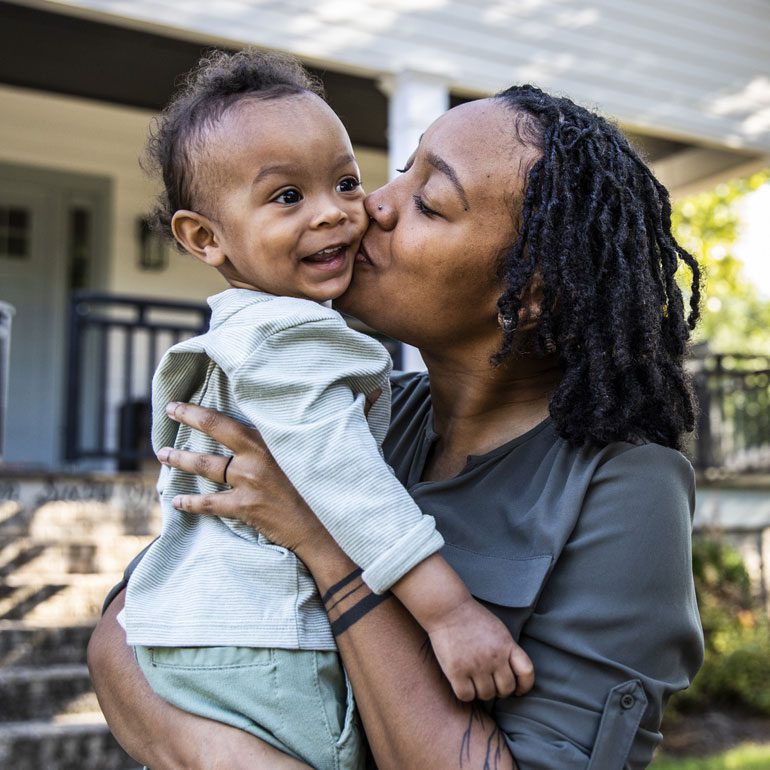Last month, I had the privilege of partnering with Relias to facilitate a webinar entitled: Co-Parenting Building Blocks To Promote Children’s Mental Health and Development. It was wonderful to have such great participation and audience engagement from those in attendance. After the webinar, there were a few questions in the chat that we did not have a chance to address during our discussion. So for this article, I decided to select a handful and respond to them in Q&A fashion.
Effective Co-Parenting Training
Question #1: How will this training impact the relationship in co-parenting?
Effective co-parenting resources have the potential to impact the family relationship in many ways. They can help to establish guidelines and strategies intended to promote the healthy growth and development of children. When parenting is the focal point of both parents, it can reduce the instances of conflict, disruption, and unwanted behaviors.
There are many reasons why parents may separate or become detached from their relationship — finances, lack of quality time, infidelity, etc. — many of which are not the fault of the child. Although children may not be the primary reason for the strained relationship, they are often the ones who experience the biggest impact.
By incorporating sound co-parenting information, tools, and training into their lives, parents can work together to identify ways they can provide their children with the psychological safety and emotional support they need during times of uncertainty and transition.
Working With Co-Parenting Clients
Question #2: What are some tips you have to avoid picking sides. I have home visits with both parents. During my visits with the mother, she tries to get me side with her. This is concerning, as I don’t want the father to feel attacked.
Working with separated families can be both challenging and satisfying at the same time. Watching children develop and grow can be very rewarding. Community-based providers can offer a neutral perspective and can often see things objectively. However, in times of separation, parents can feel inclined to seek approval and validation from other sources.
We emphasize the importance of having a child-centered approach. As cliche as it may sound, shifting their focus and attention is pivotal. In some cases, highlighting the few benefits that co-parented children may experience can be an asset.
For example, some children get a chance to unwrap gifts at two locations, have multiple overnights and sleepovers, and two allowances. We have learned that many children adjust better with this approach, versus a deficit-focused one.
For in-home and community providers, it is helpful to remind parents that their role is not to judge or pick favorites but to provide whatever resources and support that are in the best interest of the child and family. It may behoove providers to establish clear guidelines at the beginning of their work, outlining a singular focus. Setting clear parameters early on can serve as a frame of reference they can refer to if reminders and redirection are needed.
When Extended Family Become Co-Parents
Question #3: Are there any other key players besides parents that professionals should keep in a child’s “circle” regarding the topic of co-parenting?
Even in situations where the birth parents are recognized as the primary caregivers, many families rely on both familial and extra-familial connections to raise their children. Aunts, uncles, adult siblings, or close friends can all play important roles within the family support system.
When households become separated, some of those resources may reduce in size. Unfortunately, an intact network can become weakened and strained. Choosing sides, placing blame, and isolation become a reality for some parents. But what about the children? How do they fare?
Arguably, the kids absorb most of the collateral impact. Many times, they lose their homes, daily playmates, or even their seat on the bus or table in the cafeteria. In theory, the goal is for children to experience the greatest sense of normalcy as it relates to structure and routine. Cleary, this will vary from child to child, but this can create a wonderful opportunity for parents to work effectively for the sake of the child(ren).
Helping Grandparents Act As Effective Co-Parents
Question #4: Do you have any support for grandparents and parents actively co-parenting?
For grandparents who are now co-parenting, this can be one of the most challenging roles. On one hand, they get increased access to their grandchildren. This can support healthy bonding, relationship building, and the foundation for strong, healthy attachments.
The challenging part often lies with the blurred lines that now exist with the parents. Consider how difficult it must be to tell your own son or daughter they cannot see their child until the next family-time date. Think about what they tell their grandchildren when they say, “Why can’t Mom come inside, Nana?” Think about how challenging it may be to act welcoming and show enthusiasm to the offending parent if the relationship ended due to infidelity or violence? Again, these occurrences do not have a one-size-fits-all solution, but they arise more frequently than many of us know.
When in doubt, remind the parents that these arrangements are in place for the healthy development of the child — the one thing that both co-parenting parties continue to have in common.

Co-Parenting Building Blocks To Promote Children’s Mental Health and Development
Families become separated for a variety of reasons. While this is a stressful time for all, it’s extremely stressful for children to adjust to this change while navigating their own feelings. View this webinar to hear Marcus Stallworth, LMSW, Director of Training and Implementation at Child Welfare League of America (CWLA) share how effective co-parenting can aid and assist in the overall growth and healthy development of children.
Watch Webinar →





